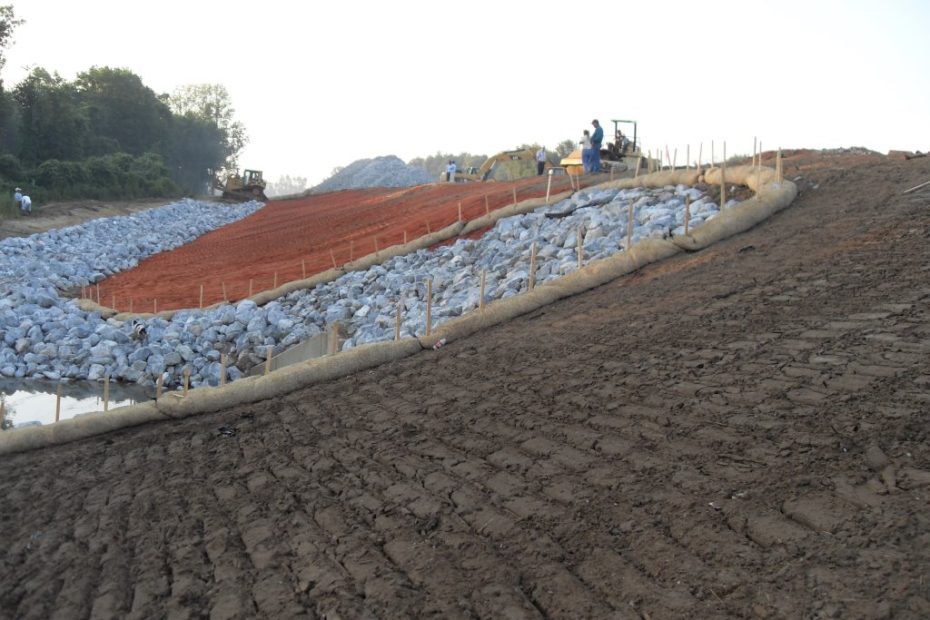Consulting Engineers: Specialized Engineering Services for Different Industries
Consulting Engineers: Specialized Engineering Services for Different Industries
Blog Article
A Detailed Introduction of the Secret Services Supplied by Consulting Civil Engineering Professionals in Modern Building And Construction
Consulting civil engineering professionals are essential to the success of contemporary construction projects, providing a complex suite of solutions that address different difficulties. From conducting extensive website assessments and expediency research studies to making certain conformity with rigid regulatory frameworks, these specialists lay the foundation for sustainable and safe growth. Their competence includes structural style and task management, which are essential for achieving economical and timely results. As the intricacy of building and construction jobs remains to develop, recognizing the full range of services they supply ends up being significantly vital for stakeholders. What implications does this have for the future of building and construction practices?
Website Evaluation and Feasibility Studies
When starting any type of building task, recognizing the website's attributes is essential, as it directly impacts the usefulness and style of the growth. Site evaluation and feasibility research studies are necessary parts of the pre-construction stage, allowing stakeholders to make educated choices. These researches involve an extensive evaluation of the physical, ecological, and regulatory facets of the site.

By incorporating these elements, civil engineering specialists can provide a holistic sight of the site's feasibility for the desired advancement. Ultimately, detailed site analyses and expediency researches lay the foundation for effective project implementation, reducing threats and enhancing source allotment.
Architectural Style and Analysis
Following a complete website analysis and expediency research, the next essential stage in the construction procedure is architectural layout and evaluation. This crucial solution entails the development of structural systems that guarantee the security, toughness, and economic stability of a job. Consulting civil engineers make use of advanced methods and software application to evaluate tons, stress and anxieties, and product buildings, ensuring that layouts follow relevant codes and criteria.
Architectural layout encompasses numerous components, including light beams, columns, structures, and bearing walls. By applying concepts of technicians and material scientific research, engineers produce structures that can endure environmental forces such as wind, seismic activity, and snow loads. The analysis stage includes meticulous calculations to anticipate the behavior of these frameworks under various conditions, guaranteeing they can do as intended throughout their lifespan.
Moreover, consulting designers team up closely with engineers and other stakeholders to integrate architectural components aesthetically and functionally. The deliverables usually consist of thorough illustrations, specs, and comprehensive reports that help with the building and construction process. Inevitably, efficient architectural design and evaluation are pivotal in minimizing threats, maximizing resources, and accomplishing successful project results in contemporary construction.
Task Management and Sychronisation
Effective project administration and coordination are vital parts of successful civil design solutions, making sure that building and construction projects are provided on schedule, within spending plan, and to the required high quality criteria. Consulting civil designers play a vital function in managing various project elements, from initial planning through to project completion. This involves not only the technical aspects of design and construction but additionally the strategic administration of resources, stakeholders, and timelines.

In addition, civil design specialists stress the value of documents and reporting throughout the project lifecycle - geotechnical engineering in south africa. By keeping precise records, they guarantee transparency and responsibility, which cultivates depend on among all events included. Eventually, skilled article source project management and sychronisation bring about boosted project end results, straightening with customer assumptions and adding to the total success of the construction endeavor
Regulatory Conformity and Permitting
Effective project administration lays the groundwork for resolving governing conformity and allowing needs in civil engineering jobs. Ensuring adherence to regional, state, and federal regulations is crucial for the effective execution and completion of any type of construction endeavor. Consulting civil design professionals play a vital function in browsing the complicated landscape of governing frameworks and allowing procedures.
These specialists are skilled in zoning regulations, building codes, ecological guidelines, and safety and security standards that govern building techniques. They perform comprehensive analyses to determine all applicable guidelines, making certain that jobs follow required legal needs. By collaborating with governmental firms and stakeholders, getting in touch with designers assist in the permitting process, streamlining authorizations and lessening delays.
Furthermore, they prepare and submit the requisite documentation, such as website strategies, environmental influence analyses, and design reports. This positive strategy not just cultivates compliance yet also improves job usefulness and sustainability. Inevitably, reliable governing conformity and allowing are vital parts of an effective civil design project, guarding both the atmosphere and public welfare while adding to the overall integrity and success of construction campaigns.
Lasting Style Practices
Sustainable design practices are progressively identified as essential components in civil engineering, with a focus on minimizing environmental effect while making the most of source efficiency. These techniques include a series of methods intended at advertising ecological balance and decreasing the carbon impact of construction jobs.
One secret element of lasting layout is the integration of sustainable power resources, such as solar and wind, right into structure designs. This not only reduces reliance on nonrenewable fuel sources but additionally enhances long-lasting price savings. Additionally, the usage of sustainable products, consisting of recycled or rapidly renewable sources, plays a significant function in reducing waste and preserving natural deposits.
Water administration techniques, such as rainwater harvesting and effective watering systems, are likewise important in sustainable design. These practices aid in reducing water usage and securing local water communities. In addition, environmentally sensitive site preparation ensures minimal interruption to the natural landscape and advertises biodiversity.
Consulting civil design specialists contribute in applying these lasting layout try this out practices. Their expertise enables for the implementation of innovative solutions that line up with both regulatory demands and client goals, inevitably adding to a much more sustainable built environment.
Conclusion
In summary, getting in touch with civil design professionals offer necessary services that underpin the success of contemporary construction projects. Via precise site evaluations, innovative structural layout, reliable task monitoring, adherence to governing requirements, and the implementation of lasting practices, these professionals contribute to the production of risk-free, effective, and ecologically liable developments. The integration of these additional resources essential solutions not just enhances project results yet also advertises a lasting future in the building and construction industry.
Efficient task management and coordination are important elements of successful civil design solutions, making certain that building and construction projects are provided on time, within budget plan, and to the needed quality criteria. Consulting civil engineers play an essential function in managing numerous task aspects, from first planning via to forecast completion. Inevitably, proficient job administration and sychronisation lead to enhanced job results, aligning with client assumptions and adding to the overall success of the building and construction endeavor.

Report this page